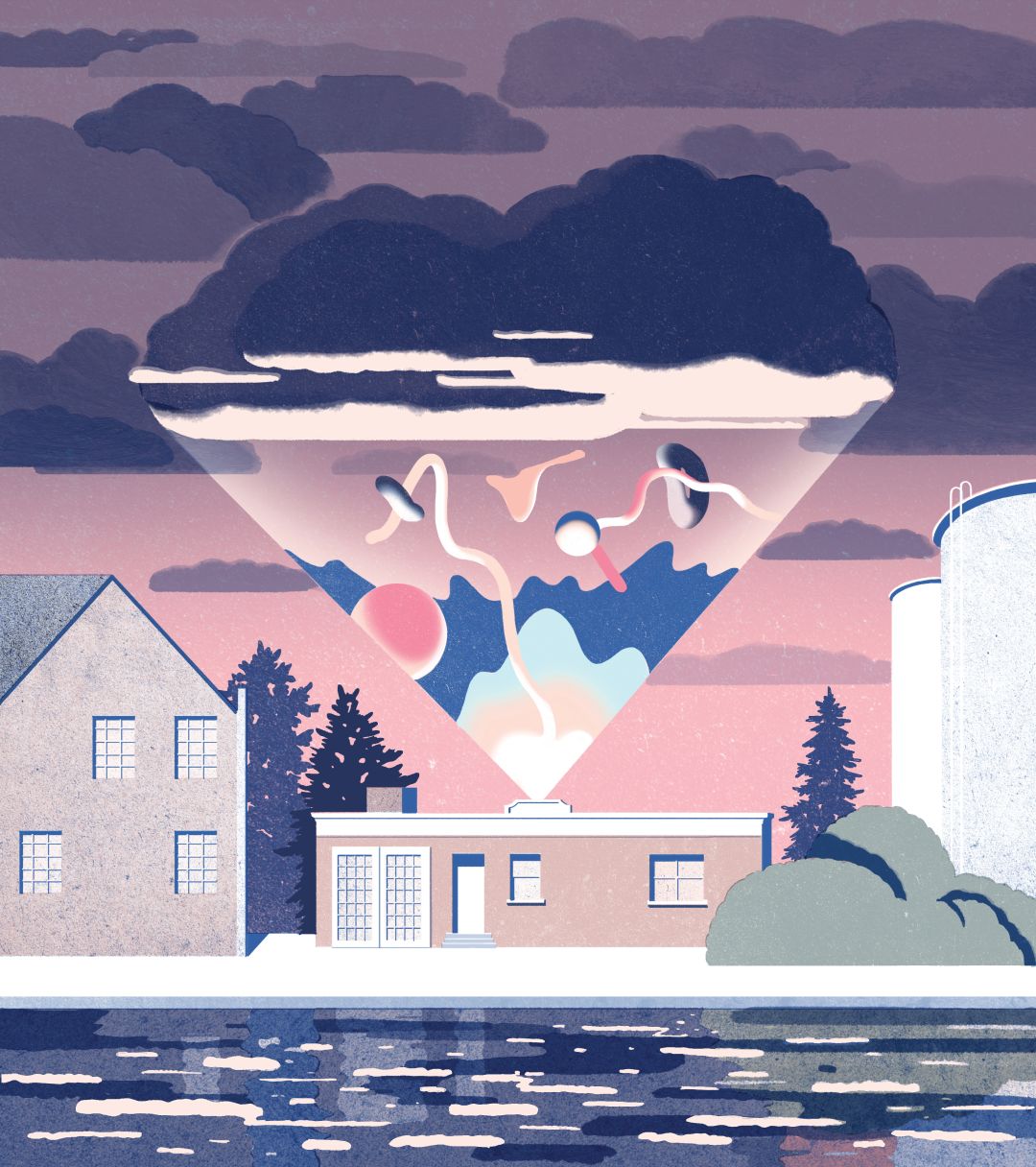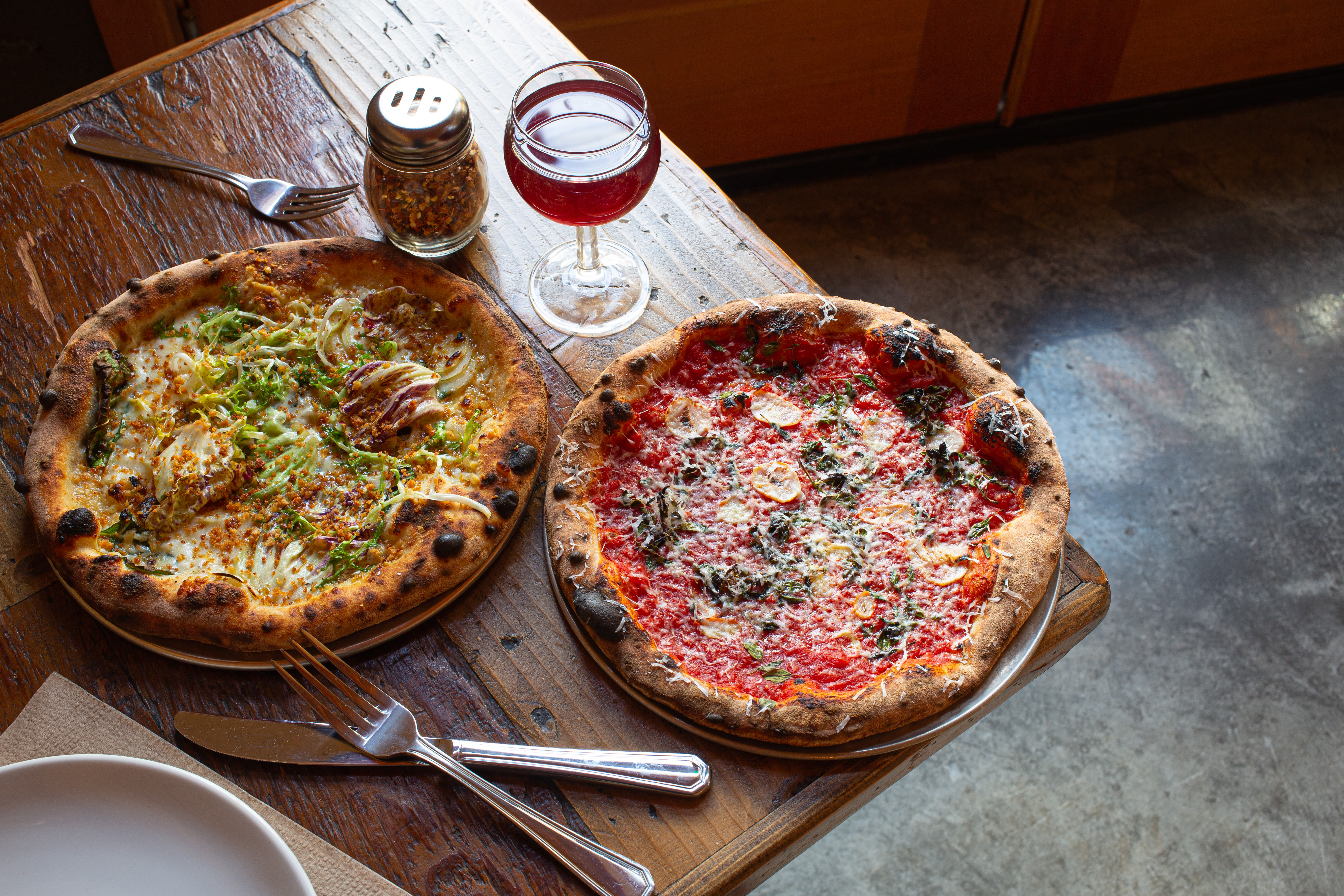A Riverside Moviehouse Breathes on the Embers of Portland's Film Underground

"It's as much a social gathering as it is a screening event," says BoatHouse MicroCinema cofounder Matt McCormick.
Image: Jun Cen
A vintage property with river views, dedicated to the arts? Not in today’s Portland, surely.
Yet even as arts spaces shut down all over town, BoatHouse MicroCinema—in a 93-year-old building on the banks of the Willamette in North Portland—is packing houses for independent, local films, with lines forming outside along the disused train tracks long before its doors open.
Inside the former fireboat station, 30 mismatched chairs and sofas face a 12-foot-wide screen. Portland filmmaker Matt McCormick and video artist Chris Freeman—who also operate their respective studios here—started their alternative filmmaking series in spring of this year, complete with screenings, workshops, and discussions.
McCormick has worked in the BoatHouse—owned by Ken Unkeles, a landlord known for supporting Portland’s arts community—for 15 years. He ran the screening series–turned–video label Peripheral Produce and PDX Film Fest, both now defunct, from this de facto indie cinema hub.
Early this year, another studio space became free. Instead of looking for new roomies, McCormick and Freeman decided to try something else. With a grant from the Portland Institute for Contemporary Art, they set up BoatHouse MicroCinema, a kind of living-room-meets-art-house, with McCormick’s own black velvet art collection on one wall to help absorb sound.
The first season’s program included a slew of high-profile Portland filmmakers, among them Brian Lindstrom and Irene Taylor Brodsky (documentary), Vanessa Renwick (experimental film), and Dawn Jones Redstone (narrative film). The one guiding rule, says McCormick, was that the filmmakers be in attendance for the screening.
“Something that I’ve always disliked about traditional theatrical screenings is that you show up to this place at a given time, the lights go off, everyone watches the movie, the lights go back on, everyone leaves,” he says. “I wanted to create something where people come, spend a little time, talk to each other, watch the work, meet the filmmaker, talk some more. It’s as much a social gathering as it is a screening event.”
The filmmakers he reached out to took varying approaches to their screenings: some showed multiple films, most took questions from the audience, and one group—Julie Perini, Pam Minty, and Jody Darbi—offered a pre-screening direct animation workshop, which involved the audience scratching and painting on 16 mm filmstrips the filmmakers then edited together and showed as the evening’s final piece.
As a new venue and meeting point, the BoatHouse has Portland’s film fans and creators excited. Filmmaker Joanna Priestley, who screened work here during the spring season, described it as “one of the most charming” spaces to show films in the city, adding that it’s an “absolutely essential” addition to our independent film scene. “I really like these small venues where you get a chance to get to know who’s curating and putting on programs,” she says. “You get to know the other filmmakers in the program; you have really interesting question-and-answer sessions because the audience is small and people can interact.”
The spring season boasted sold-out screenings. The fall lineup—which includes work from animators Chel White, Jim Blashfield, and Joan Gratz as well as experimental filmmakers Melody Owen and Stephen Slappe—is likely to follow suit.
McCormick says the new series revives the energy of interaction that was once a byproduct of putting work in front of an audience. “We used to do screenings like these 20 years ago, and we could make an honest argument that if you didn’t come, you were never going to see this work,” he says. “Now between YouTube and Netflix and the various streaming sites, it’s much easier for artists to get their work out there.”
He also sees the BoatHouse as a venue for preserving and reanimating the creative, improvisational city many claim is disappearing beneath a wave of change.
“There’s a vital element to the process of art making, to make something and show it to a room full of people,” he says. “We need this. These are the sorts of things that made Portland what Portland is. If you could get a time machine and go back to Portland in 1995, you couldn’t throw a rock in this town without hitting something like this. I’m trying to keep that legacy going somehow.”
The BoatHouse MicroCinema hosts a series kickoff party September 16, with themed programs Sunday nights through November 19. See boathousemicrocinema.com.




